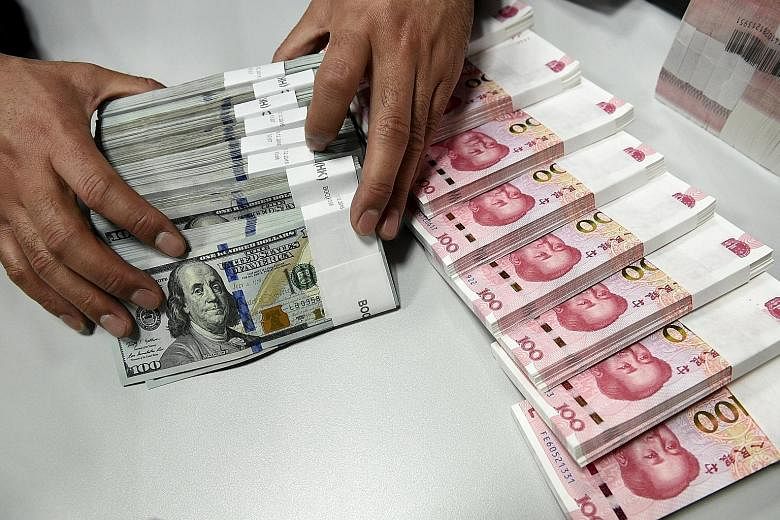The yuan hit five-year lows yesterday after China's central bank surprised the market by moving a key level for the currency to a lower- than-expected point.
Analysts said the change could mean the yuan's value will now be set against a basket of currencies instead of just the United States dollar.
Yesterday's move involved the People's Bank of China cutting its daily official midpoint rate for the yuan to 6.5314 to the US dollar, the lowest level since April 2011. It was 0.22 per cent weaker than its last onshore closing level on Tuesday.
It was the seventh consecutive day the central bank has weakened the yuan, sparking concerns that it could be a repeat of the shock devaluation last August, when the currency lost nearly 5 per cent of its value in a week.
"(The) reference rate suggests foreign exchange policy could be becoming more flexible sooner rather than later, which would be a critical development for the yuan," HSBC analysts Paul Mackel and Wang Ju wrote in a note yesterday.
DBS senior currency economist Philip Wee said the move could
be a sign that the central bank is making the value of the yuan more market-oriented by tracking the US dollar's movements against a basket of currencies of its major trading partners.
While the offshore yuan has slumped to an all-time low against the US dollar, Mr Wee believes
the bigger picture is more important: "I don't think it is fair to assess the yuan solely against the US dollar. China needs flexibility to adjust its currency to the global currency markets."
OCBC economist Tommy Xie also noted that the yuan's value against a basket of currencies would probably best explain the central bank's move yesterday.
"Despite the yuan's depreciation against the dollar, it has appreciated against the basket of currencies in 2015," he said.
The yuan index ended last year at 100.94, meaning that the currency had strengthened against the basket of currencies by 0.94 per cent. After yesterday's devaluation, the index still stood at 100.80, said Mr Xie.
"We think it might be better timing for us to sense China's yuan policy when the index falls back to the 100 level. Before that, the fear of the unknown is likely to persist for a while," he added.
UOB senior economist Suan Teck Kin expects the yuan to weaken further, although "there are no signs of deterioration in economic activities".
"We believe the current yuan weakness may be too excessive," he said.


